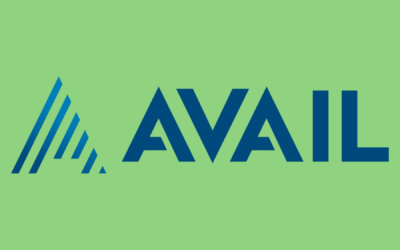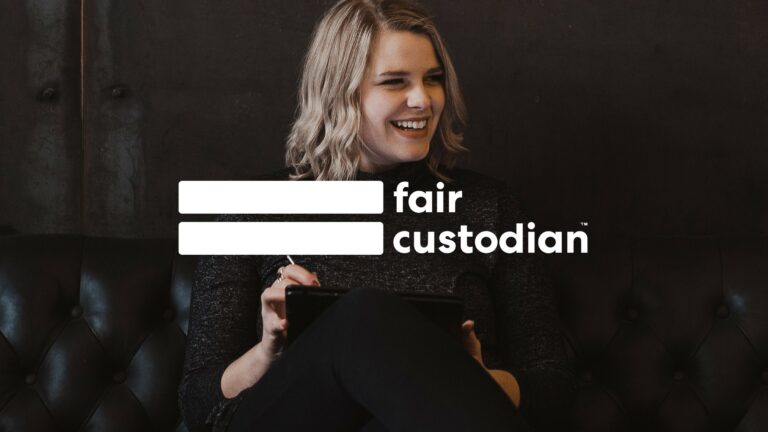Why did you start Fair Custodian?
The four of us met three years ago at a startup event, and realised that we have a very complementary set of skills. From then, we began exploring ways that we could work together with a focus around applying machine learning to difficult software engineering challenges.
One project we explored was using satellites to track and predict the movements of container ships, preventing them from anchoring on undersea cables.
Unfortunately our commercial partner backed out at the last minute, but this only inspired us to build something ourselves so that we didn’t have to rely on someone else. After many discussions around the applications of machine learning, as a team we realised that we weren’t aware how companies were using personal data and we started to question if other people knew how their data was being used.
We started building Fair Custodian to show that companies could use personal data without relying on opaque practices, and our aim now is to show that consumers and businesses can rebuild the trust in their relationships, with both sides achieving their goals.
Tell us more about the tech behind the product.
Fair Custodian’s consumer tool is a web app that allows a user to sign in using an existing email account and we can then quickly discover all of the places that email address (a unique identifier) has been used to create online accounts.
The user can also check large databases of data breach information to find out if their email address has been included in any leaks of personal information.
Via a dashboard, you can view the relationships between your email address and businesses, with the option to also read more about the business, see if it’s been breached recently, and send legal requests under the General Data Protection Regulations (GDPR).
Our business tool is a subscription web app that allows an individual (usually the Data Protection Officer or DPO) to sign up and register their business. They will then be walked through the process of gathering the internal information required for GDPR compliance. The DPO can then invite further employees who may have ownership over internal or third-party systems used by the business.
The web app provides workflow and task management tools for handling ongoing compliance and incoming requests from consumers.
Where are you at right now?
Since our initial idea we’ve been through a few MVP iterations for the consumer product and we’ll be launching the latest version very soon following a required review process for our use of the Google Gmail API. As our concept is a relatively new one to the market, we wanted to ensure that it was working correctly, that it’s user-friendly and that it is fully GDPR compliant.
Our business product is currently under development and we’re hoping to have a beta product ready for the first paid customers over the next couple of months. We’re looking to have a full launch product available by January 2020.
What are your aims for the next year?
We’d like to significantly grow our consumer user base so we can start to offer improvements on top of the account management tools. Improvements will be designed to enhance the experience of using personal email, and abstract away a lot of the boring text/subject lines to get people straight to the things they’re interested in.
What’s been the hardest thing about getting Fair Custodian off the ground?
Helping people to believe that a world of fair data sharing and management is possible, and that the current state of shady practices and misuse of consumer data doesn’t have to be the norm. Business processes can continue without misleading customers, and those customers can trust businesses to do the right thing with their data.
Perceptions are shifting, and Fair Custodian can help both businesses and consumers keep data safe and processed correctly.
Why should more people be using Fair Custodian?
Fair Custodian removes the need to have to read countless pointless emails and wonder which businesses are using data about you to try to sell you more things you don’t want.
We also want consumers to understand their data rights as an individual and take a front seat in your relationship with businesses. Businesses will also be able to easily manage compliance and ongoing management of data protection regulation to show customers they care about their relationship.
We talked to the team to get a better idea of what Fair Custodian means for internet users.
How much will it cost?
One of our key values within Fair Custodian is that privacy is a fundamental right, meaning individuals should never have to pay in order to understand and manage how their data is being used. We are, however, exploring the possibility of additional paid features that will seek to improve the way we can interact with email, on top of the personal data management tools.
The business software will be a simple monthly or annual subscription, and we’re currently exploring the best pricing for this as we start initial paid trials.
We know that a significant amount of current expenditure in this area comes as a hidden cost in terms of employee time, so we’re working with businesses to further understand the extent of this hidden cost and how much of it the Fair Custodian platform can alleviate.













